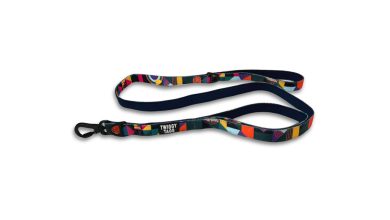Choosing the person to look after your Westie is a big deal.
There are plenty of things to consider when searching for a dog walker and as a dog walker myself, I always suggest the following pointers when it comes to choosing someone who is about to walk away with your best friend.
- Do your research. Does the dog walker have a website or Facebook page? Do they have online reviews? Does their approach match yours? Not all dog walkers have a great online presence but ask for testimonials if there are no reviews online.
- If someone has recommended a dog walker to you, meet them, and still do your own research. Every dog has different needs and preferences when it comes to walks, and it is still important to meet them and make your own mind up.
- Always have a meet and greet with the walker and preferably bring another trusted person along. It is your opportunity to see if someone is the right fit for you and your dog.
Ask lots of questions. I really encourage people to ask anything and everything. Email the dog walker and ask what services they offer and give them as much information as possible about your dog and their needs so they can check if they are a suitable fit for you.
During the meet and greet; Do you trust and like this person? Does your dog warm up to them during the visit? (Note, that with more reserved dogs this may take a few visits). Do they seem to have a lot of common sense? Do they have a good understanding of canines and their body language? If your dog is reactive, do they have the necessary experience with reactive dogs?
Look out for the questions they ask you. They should be asking about the personality of your dog, what their likes and dislikes are, how they behave around traffic, children, bicycles and other dogs, their recall if they are let off the lead, what commands they respond to and if they are allergic or intolerant to anything or have any health conditions. These are all very important things for a responsible dog walker to know.
- Ask to see proof of their insurance; insurance is crucial for dog walkers and protects you and them against the worst from happening. Double check that it is in date and covers them for the services they are offering- it will say on the documents. Dog walkers do not currently need to be licensed like dog boarders or day care providers, but they must be insured.
- Avoid thinking that the cheapest option is the best option. On a yearly basis I buy equipment such as leads and toys, puzzles, different water bowls and bottles for different dogs, cooling jackets and towels, treats, leads, collars, name tags, poo bags cleaning products, insurance, pay for travel and online courses and books about dogs to top up my knowledge. Other dog walkers have a car or van, crates, and licenses to pay for if they provide day care, or home boarding at their home. There is the cost of a dog first aid course, and many more expenses.
- On the flip side, consider using a new dog walker. They often charge cheaper prices to begin with, but they can be a great fit for your dog too, and we all must start somewhere.
- If you choose a group walk, ask them how they transport dogs. Multiple dogs should be transported in a van in crates to protect them in an event of a crash and to stop them from being thrown around together in the back. Check how long your dog might be in the van before and after the walk. The van should have good ventilation, with a fan or air conditioning ideally. How many dogs will be walked in the group? How do they group dogs together? How would they recall a dog?
- Not all dogs like group walks and some may prefer a solo walk. Consider that this might be the case for your dog and think about what you would be happy with. Group walks offer the chance for your dog to play with other dogs and walk together in a pack, and a solo walk will mean the walker can give your dog one to one, undivided attention. There is no right or wrong and it depends on your, and the dog’s preference.
- People who work with dogs should ideally have attended a dog first aid course. A first aid course will teach you how to break up a fight and how to help a choking dog, amongst other things. Ask if they carry a first aid kit with them on walks.
- Trust your dog walker. I am very lucky and can honestly say that every single one of my customers have been great people. A dog walking relationship is built on trust, and it goes both ways, and it means the world to us when you trust us and our judgement. Saying that, do not be afraid to ask for something that you want.






